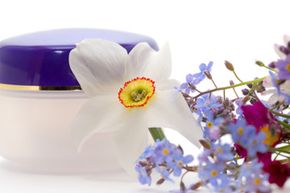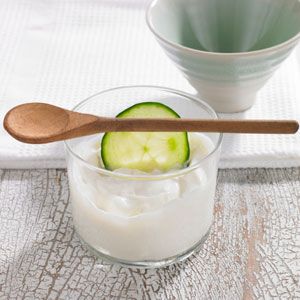Although odor probably doesn't top your list of considerations when choosing a skin cleanser, the smell of a product that you use every day is actually pretty important. You wouldn't choose a cleanser that smells unpleasant or overpowering. With fragrance becoming an increasingly important attribute of skin care products, you might wonder how fragrances work in cleansers.
There are more than 5,000 different fragrances currently used in various cosmetic products. In fact, in one product alone, combinations of 200 or more chemicals may be added to attain that perfect scent [source: Bouchez]. Essential oils -- like almond oil, rose oil and lavender oil -- and other plant extracts are common ingredients that add pleasant aromas to many different skin care products. Some essential oils are even thought to have other beneficial properties, like the ability to soothe irritated skin or moisturize dry skin [source: Begoun].
Advertisement
Despite the scent, however, fragrances have been identified as the most common cause of allergic contact dermatitis, which is an irritation or rash on the skin [source: American Academy of Dermatology]. Even though the safety of various fragrances is often reviewed according to industry-developed guidelines, certain fragrances deemed safe for general use can still cause reactions in certain people [source: Baumann].
The best way to avoid the risk of an allergic reaction to fragrances is to choose a skin cleanser that is fragrance-free. It's important that it's labeled as "fragrance-free" rather than "unscented," as unscented products may still contain fragrances used to mask the smell of other chemical ingredients in the product. But if a pleasant aroma is really important to you, stick to a very simple scent, like "rose" or "lavender," rather than a scent that's made from a combination of chemicals, since a scent made from fewer ingredients is less likely to cause a reaction [source: Bouchez].
By choosing your scents wisely and by keeping yourself on the lookout for signs of allergic reactions, you can find a cleanser that works well for your skin and smells great, too. For more information about fragrance and skin care, follow the links on the next page.
Advertisement


